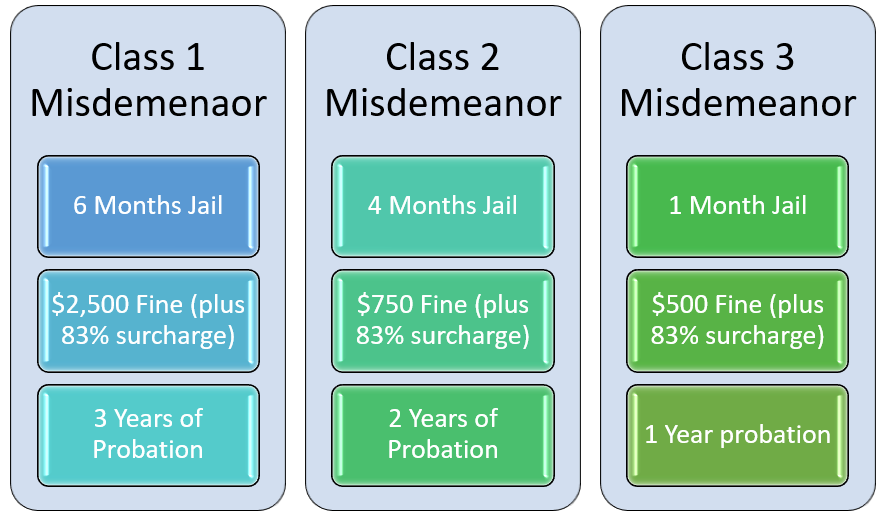
Being charged with a misdemeanor can be a stressful and confusing experience, especially if it’s your first encounter with the legal system. Knowing what to do is critical to how the case will play out. In this article, we’ll explain some of the legal process and give you some constructive steps to move your case along in a positive direction.
What is a Misdemeanor Charge?
According to Cornell Law School, “A misdemeanor is a type of offense punishable under criminal law. A misdemeanor is typically a crime punishable by less than 12 months in jail. Community service, probation, fines, and imprisonment for less than a year are commonly issued punishments for misdemeanors.”
In terms of the way the legal system sees crimes, misdemeanors are a step below felonies (in terms of how grievous they are). As a result, they carry less severe consequences and penalties than felonies (which can include jail time of a year or more).
Not all misdemeanors are created equal. While different states classify misdemeanors differently, many use a lettering system. The most common classification looks like this:
- Class A Misdemeanor: The maximum term of imprisonment permitted is one year or less (but more than six months).
- Class B Misdemeanor: The maximum term of imprisonment permitted is six months or less (but more than thirty days).
- Class C Misdemeanor: The maximum term of imprisonment permitted is thirty days or less (but more than five days).
Different states have different rules in terms of which misdemeanors fall into which classes, so you’ll have to research the laws that are specific to the jurisdiction in which your charges occurred.
The Legal Process
Once an alleged misdemeanor crime has occurred, a fairly standard process unfolds within the legal system. This likely begins with an arrest and being taken into custody. From there, the police file a report and the prosecutor decides whether or not they want to formally charge you.
Once charged, you’ll be scheduled for an arraignment – your first court appearance. Here, you’ll be officially informed of your charges and asked to enter a plea. Pleas generally fall into three categories: guilty, not guilty, or no contest. Depending on your plea and whether you have an attorney present, your case will proceed to either a pre-trial conference, a trial, or sentencing.
During the pre-trial conference, your attorney and the prosecutor will have the opportunity to negotiate a plea deal, if one hasn’t been arranged prior. If no agreement is reached, your case will then proceed to trial. During trial, evidence will be presented by both sides and witnesses may be called. Following this, the judge or a jury will determine your guilt or innocence.
If found guilty, or if you’ve pleaded guilty, you’ll be sentenced. Sentences for misdemeanors can include fines, probation, community service, or jail time. However, sentencing varies widely depending on the nature of the crime and your prior criminal record.
Steps to Take After a Misdemeanor Charge
Once charged, it’s time to put together a plan. Here are some of the critical steps you should take:
- Know Your Rights
Make sure you know your rights when facing a charge like this. While your Miranda Rights should have been read to you during your arrest, it’s always a good idea to take some time to review them. Your rights include the right to remain silent; the right to hire an attorney; and the right to a fair and speedy trial.
- Find an Attorney
As mentioned, you have a choice when it comes to representation. But don’t make the mistake of representing yourself. And unless you absolutely can’t afford it, try everything within your power to hire an attorney instead of using a court-appointed public defender.
“Some people don’t take a misdemeanor charge seriously until it’s already permanently attached to their criminal records,” attorney Rowdy G. Williams points out. “That’s usually about the time they start kicking themselves, wishing they had called a lawyer.”
Find a good attorney as soon as you can. In the long run, they’ll be worth every penny.
- Prepare for Court
The final step is preparing for your court appearance. This includes physical preparation, such as gathering any necessary documents and planning your court attire, as well as mental and emotional preparation. Your attorney will guide you through this process and help you prepare your defense strategy.
Don’t Wait – Take Action ASAP
A misdemeanor charge isn’t something you want to “slow play.” While you might think you have time to put together a plan, each day you wait is one less day you have to get your charges reduced or dismissed. Find an attorney as soon as possible and work with them to formulate a strong plan.












